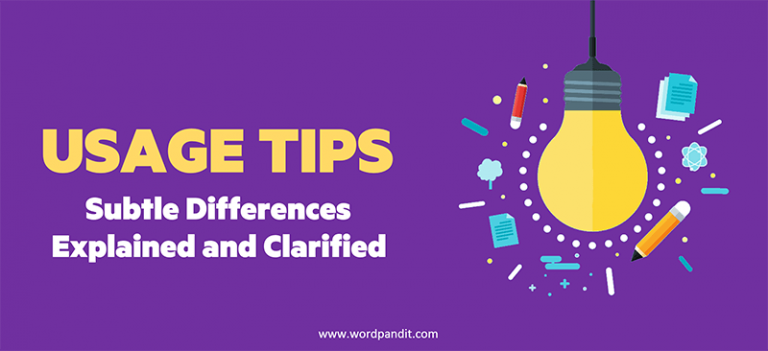Cliché vs. Clique 🤔🧠
Have you ever been in a conversation 🗣️ where someone called an idea 💡 a “cliché” and you thought 🤷♂️ they were talking about a “clique”? 🤔 You’re not alone! These two words sound 🎶 somewhat similar, but their meanings are as different as chalk and cheese 🧀. Understanding the difference between “cliché” and “clique” will not only make your vocabulary 📚 richer but also help you avoid some awkward 😬 social blunders.
Imagine this: You’re at a party 🎉 and someone mentions how a group of friends 👥 is so cliché. Are they saying the group is unoriginal, or are they referring to a close-knit circle 🔄 that’s hard to get into? It’s easy to mix these words 📝 up, especially since they both have French 🇫🇷 origins and sound a bit alike. But let’s clear up the confusion ❓ once and for all so you can use each term confidently! 💪
Cliché 😴
Definition: A cliché is an overused 🔄 expression or idea 💡 that has lost its originality or impact. Essentially, it’s something that might have been clever 🤓 or insightful at first, but after being repeated endlessly, it’s become tired 🥱 and predictable.
Pronunciation: klee-shay 🆙
Etymology: This word comes from the French 🇫🇷 language, where it was originally a printing term 🖨️. The history fits perfectly—just like the repeated stamping 🔄 of a cliché printing plate, cliché expressions lose their sharpness over time ⏳. In fact, the term comes from the sound 🔊 made by the printing plate as it was used repeatedly, which is quite fitting when you think of how clichés lose their freshness 🥀 through overuse.
Usage Examples:
- “The saying ‘love conquers all’ 💔 is such a cliché, and it doesn’t really reflect the complexity of real relationships.”
- “His speech 🗣️ was full of clichés that didn’t inspire 🌟 anyone. People were nodding off 😴 halfway through.”
Synonyms: Platitude, banality, truism
Antonyms: Original thought 💡, fresh idea 🌱, unique insight 🌟
Clique 👥🚫
Definition: A clique is an exclusive group of people 👥, often formed based on shared interests, who are sometimes viewed as unfriendly 🤨 to outsiders. Cliques can be found in schools 🏫, workplaces 🏢, or social settings where small groups form and tend to exclude others.
Pronunciation: kleek or klik 🆙
Etymology: The word “clique” also hails from French 🇫🇷 and refers to a small, tightly-knit group 🔄. The sense of exclusivity that comes with the word might explain why cliques can sometimes make others feel left out 😔. Historically, the word was used to describe a group that sticks together, often to the detriment of outsiders who may feel alienated 🤷♀️🤷♂️.
Usage Examples:
- “The high school 🏫 was divided into several cliques that didn’t mix well. Each group had its own territory in the cafeteria 🍽️.”
- “They formed a clique that planned all the events 🎉, and no one else could join in. It made the other students feel left out and undervalued.” 😔
Synonyms: Group 👥, faction, circle 🔄, inner circle
Antonyms: Open community 🌍, inclusive group 🤗, welcoming circle
Cliché vs. Clique: A Quick Comparison 🔄🤓
- Meaning: A cliché is an overused idea 💡 or expression, while a clique is an exclusive group 👥 of people.
- Usage: Use cliché when talking about something unoriginal 🥱 or predictable. Use clique when referring to a tight group 🔒 that’s hard to enter, often intentionally so. 🚪❌
- Example in Context: “It’s such a cliché to think that all popular kids belong to a clique. Not all of them are exclusive or mean—some are genuinely friendly!” 😊
Mnemonic Device 🧠💡
To remember the difference: “A cliched idea 💡 can feel as excluding as a clique, but only people 👥 can form a clique.” Just think of a cliché as something you hear 🎧 too much and a clique as a group you may not be able to join 🤷♂️.
Related Confusing Words 🚻📚
Genre vs. Gender: Two words that are often confused 🤔 but have completely different meanings! A genre is a category 📚, often used for books 📖 or movies 🎬, while gender relates to social and cultural differences.
Conclusion 💡✅
By now, you should be crystal clear 💎 about when to use “cliché” and when to use “clique.” Remember, one is about ideas 💡 that have been worn out 🥱, and the other is about a group 👥 of people who might not let you sit with them. Next time you’re at that party 🎉, you’ll know exactly what’s being said! Whether you’re talking 🗣️ about overused expressions or exclusive social groups, understanding the distinction helps you communicate with greater precision ✨ and avoid any embarrassing 😅 mix-ups.
Language is full of subtle differences, and learning to navigate 🗺️ these nuances is what sets a strong communicator apart from the rest 🌟. So, keep practicing, and soon enough, these confusing word pairs will be second nature to you! 🤓💪
Test Your Knowledge: Cliché vs Clique Quiz 📝
1. The plot of the movie 🎥 was a complete __, with nothing original to offer.
2. She wanted to join the popular __, but they wouldn’t let her in.
3. A cliché is an exclusive group of people.
4. Select the correct synonym for ‘Cliché’ from the options below:
5. The club 🏠 has turned into a close-knit __, only inviting certain people to meetings.
6. Which of the following sentences correctly uses ‘Cliché’?
7. The group of friends 👥 formed a __, while their jokes 😂 were nothing but __.
8. Which word originates from French 🇫🇷 as a term for an exclusive group?
9. A clique is an overused idea.
10. The students decided to abandon their old group habits 🚶♂️, while also forming a new __ with like-minded peers.













